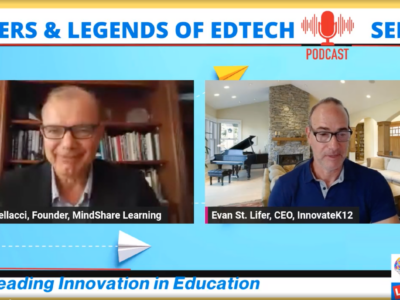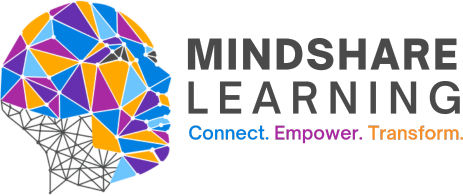In addition to its roles in broadening access and success in education, online and open learning has the potential to serve as an effective instrument for social change and cohesion. Through careful learning design that looks beyond the teaching of content to wider purposes of education, online and open learning can help students to:
- develop essential personal skills as the core of their learning;
- reach beyond their regular peer groups
- engage in a mindful and focused dialogue with others around the world;
- articulate and comprehend ideas based in different cultural, religious, and political beliefs; and
- master competencies needed to lead change and engage in social action.
Social change and action are often preceded by broader social understanding – another key component that online learning can inspire.
In looking for values and goals to guide the aspects of online and open learning that can foster social change, much can be learned from the Gűlen Movement, a worldwide civic initiative rooted in the spiritual and humanistic traditions of Islam and inspired by the ideas and activism of Mr. Fethullah Gűlen – named by Time magazine as one of the most influential people in the world in 2013 The schools founded by the Gűlen movement – more commonly referred to as Hizmet – are focused on quality and outcomes and are generally high performing schools, excelling in science, mathematics and social understanding. Their philosophy is focused on social meaning:
“Education is not just about learning a concept. It’s about learning values, to be a person… and betterment of the individual toward a positive change in society.”
The accumulation of skills and knowledge and the development of citizenship are the often stated intended outcomes of education. Critical to the achievement of these outcomes are the values that underlie and accompany the learning. In the concepts of the Gűlen Movement, this is expressed as: “education is not just about learning a concept. It’s about learning values, to be a person… and betterment of the individual toward a positive change in society.” Among the values espoused by the Gűlen Movement are tolerance, integrity, humanity, freedom, and democracy. In the over 1,000 Gűlen schools operating around the world, including several in Canada and the US, students focus on translating these values into meaningful social projects which connect their learning to the communities in which they live.
Online learning has the capacity to encourage and enable these values and related expression of these values in social action through a learning design that respects the contributions of all and supporting appropriate and respectful practices of teaching and learning, communication and exchange. Using peer networks, connecting to thought and social action leaders and engaging in common projects across regional and national boundaries can all be part of this learning design. Using reflective learning can also ensure that students are not just busy with activities, but can connect these activities to values.
Successful online learners also develop technological and study skills, as well as independence and resilience, balanced by a sense of interdependence with their online peers and faculty support. They become more self-aware – of their learning and cognitive styles, also realizing that these differ in others. Surprisingly to many, online learners can become immersed in an online community of practice which is as powerful as a small group working together within a school. Indeed, there is strong evidence supporting the idea that such communities of practice are more effective than small group work in a more traditional learning environment.
Self-awareness, within a context of understanding of others, can foster wider social acceptance – a step towards the Gűlen goal of “improvement of diversity, pluralism and multiculturalism throughout Canada”. The use of structured social media, mentored by experienced and thoughtful instructors, can help shape the work of many learners and enable self-awareness, mindfulness and effective learning. Such networks can also enable cross-cultural, social connectivity far beyond that possible in the context of a classroom in a local school. They can thus help close ”the gaps in society which can, in turn, lead to acceptance, understanding and respect” through shared values and meaning.
Online and open learning can also open up access to learning so that many people who could not attend traditional institutions can further their education. Open learning – giving access to education irrespective of past qualifications – offers opportunities to those who may not have completed all the academic requirements for postsecondary attendance, while online learning brings the learning to wherever the learner might be. All students benefit from this wider access as a greater range of ideas, perspectives, experiences, and cultures are represented in classes. This mirrors the Gűlen Movement principle as “closing the gaps in society which can, in turn, lead to acceptance, understanding, and respect”.
The potential of online learning for achieving the humanistic and global communication
Integral to the Gűlen Movement are principles concerning the communication necessary for social understanding and respect:
- Reach out across boundaries, working with people with different beliefs and bringing ourselves together. Massive Open Online Courses (MOOC’s) have enabled literally thousands of people to engage in focused learning together in such a way as to foster peer networks, peer assessment and peer shared learning all focused on mastery of a body of knowledge. Whether for a short course (now known as a Nano MOOC) or a long course, such as Muslims in Britain – Changes and Challenges, students can work together across the world to achieve significant learning outcomes.
- Advance social cohesion through personal interaction by promoting respect and mutual understanding among people through dialogue and partnership. Communities of practice and interest can be part of the learning design so that students studying a particular topic can reach out to others with expertise, knowledge and experience and engage with them as part of their learning. They can also share their learning back to the global community in effective and focused ways.
- Promote interfaith and intercultural cooperation, tolerance and dialogue by sharing our differences and similarities in an effort to enhance civil society, promote the development of human values, advance diversity and multiculturalism. Through effective community engagement designed into the learning, perhaps through applied projects intended to have social impact, studens can experience the challenges of co-operation and tolerance.
As can be seen from these observations, voices that might not be heard in a face-to-face classrooms have place, role, meaning and validity in an online learning environment.
Standards for mentored online communication can minimize and correct thoughtless criticism or derogatory, personal comments. Instead of the sniping and rudeness sometimes encountered in open online forums, discussions in online classes can focus on sharing, critical thinking, constructive dialogue and knowledge building – mirroring behaviour and goals that can be adopted outside of school. Powerful dialogues occur in online learning setting that can be life-changing.
The global reach of online learning, linked with its ‘anytime’ access, means that students from various cultures, countries, and language groups can interact and learn from each other. Examples of this in Ontario education include a course in Muslim Studies offered simultaneously to students at a university in Turkey and students at Wilfrid Laurier University in Waterloo, Ontario. The professor described the courses success: “The students covered substantial academic material, supplemented by interpersonal and intercultural learning at unanticipated levels”. A second example involved linking students on the Thai/Burma border with students at York University in Toronto for a course on Global Environmental Change, with both groups benefitting from the varied experiences and perspectives offered.
The potential of online learning for achieving the humanistic and global communication goals of the Gűlen Movement is just being explored but it offers enormous potential for international dialogue based on mutual learning and openness to the globalization of ideas.
The Possibility of Social Action
“Knowledge is a value in itself, but the purpose of learning is to make knowledge a guide in life”.
While social action is the primary goal for the Gűlen Movement, online and open learning is often more attuned to supporting social understanding and cohesion – which may result in social action and commitment. For example, some of the York students taking the Global Environmental Change course were inspired by their experience to consider the full certificate program. But there is no reason why a learning design cannot focus on taking this social understanding to the next level: social action. Students can be encouraged to look at “wicked problems” such as climate change, next generation energy, the future of forests, water use and conservation and develop and implement action plans associated with these problems. This is precisely what the Canada based TakingItGlobal is doing in conjunction with The Centre for Global Education: they are empowering young people to take social action focused on the greatest challenges facing their communities.
In moving toward social action, students may find inspiration in the Gűlen belief that: “knowledge is a value in itself, but the purpose of learning is to make knowledge a guide in life”. Online learning, coupled with this agenda, can be a vehicle to take this platform for meaningful, mindful social action to the next level.
 Maxim Jean-Louis is President – Chief Executive Officer of Contact North | Contact Nord, Ontario’s Distance Education and Training Network, headquartered in Thunder Bay, Ontario.
Maxim Jean-Louis is President – Chief Executive Officer of Contact North | Contact Nord, Ontario’s Distance Education and Training Network, headquartered in Thunder Bay, Ontario.







